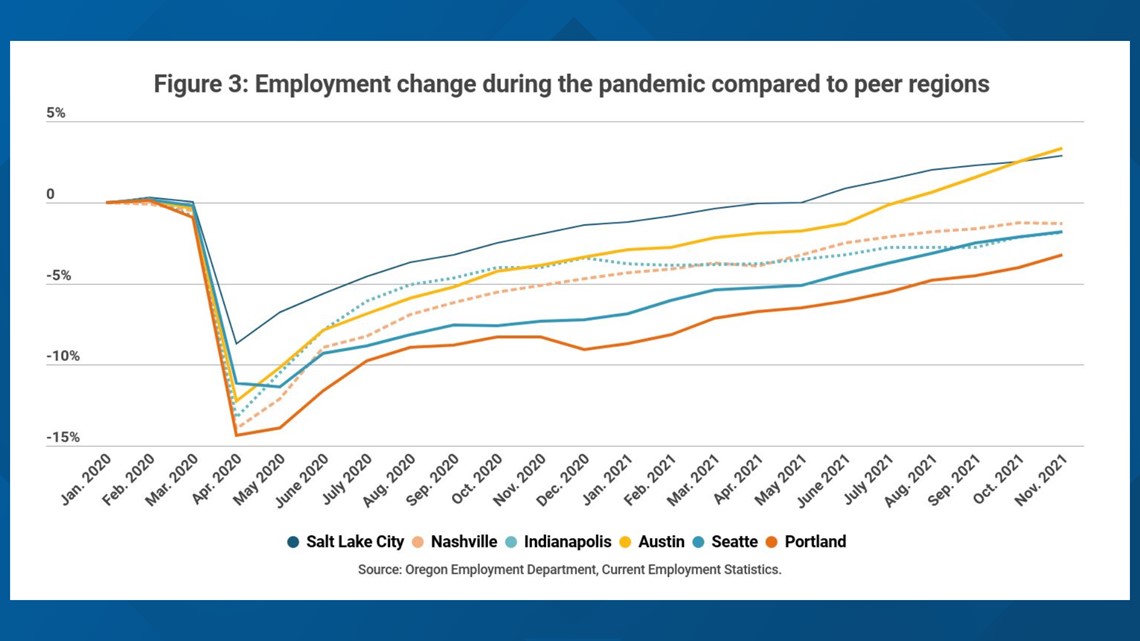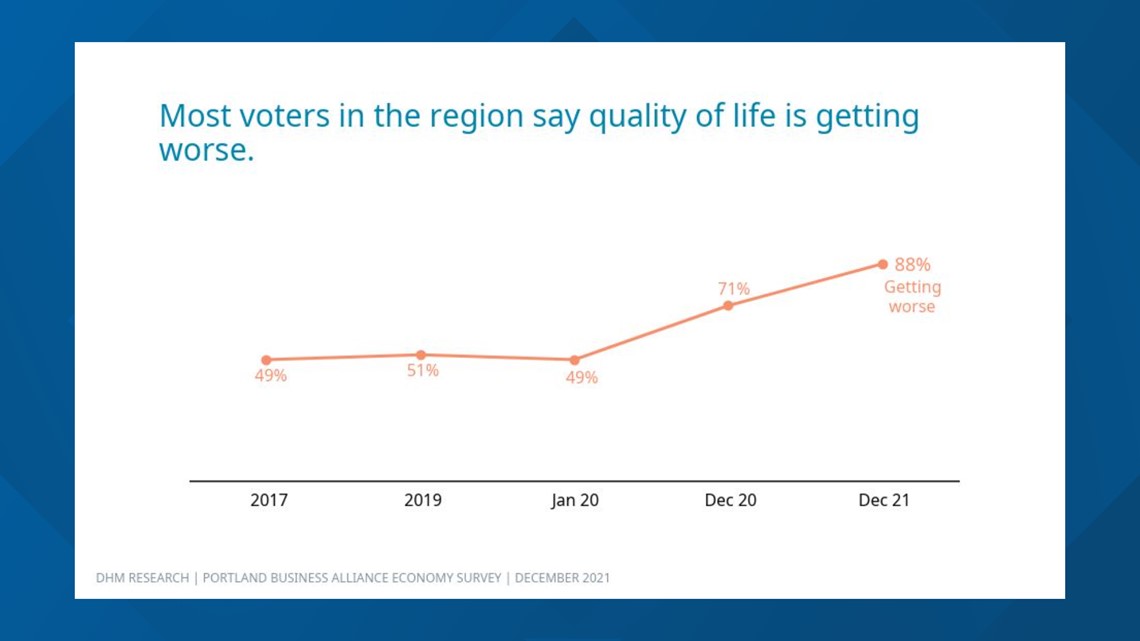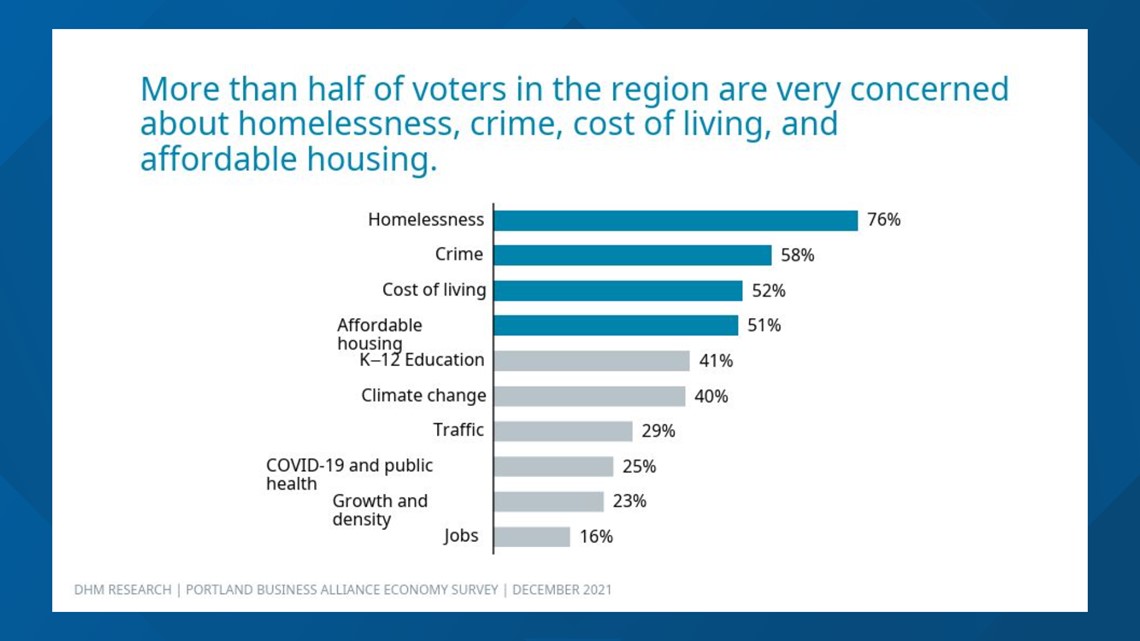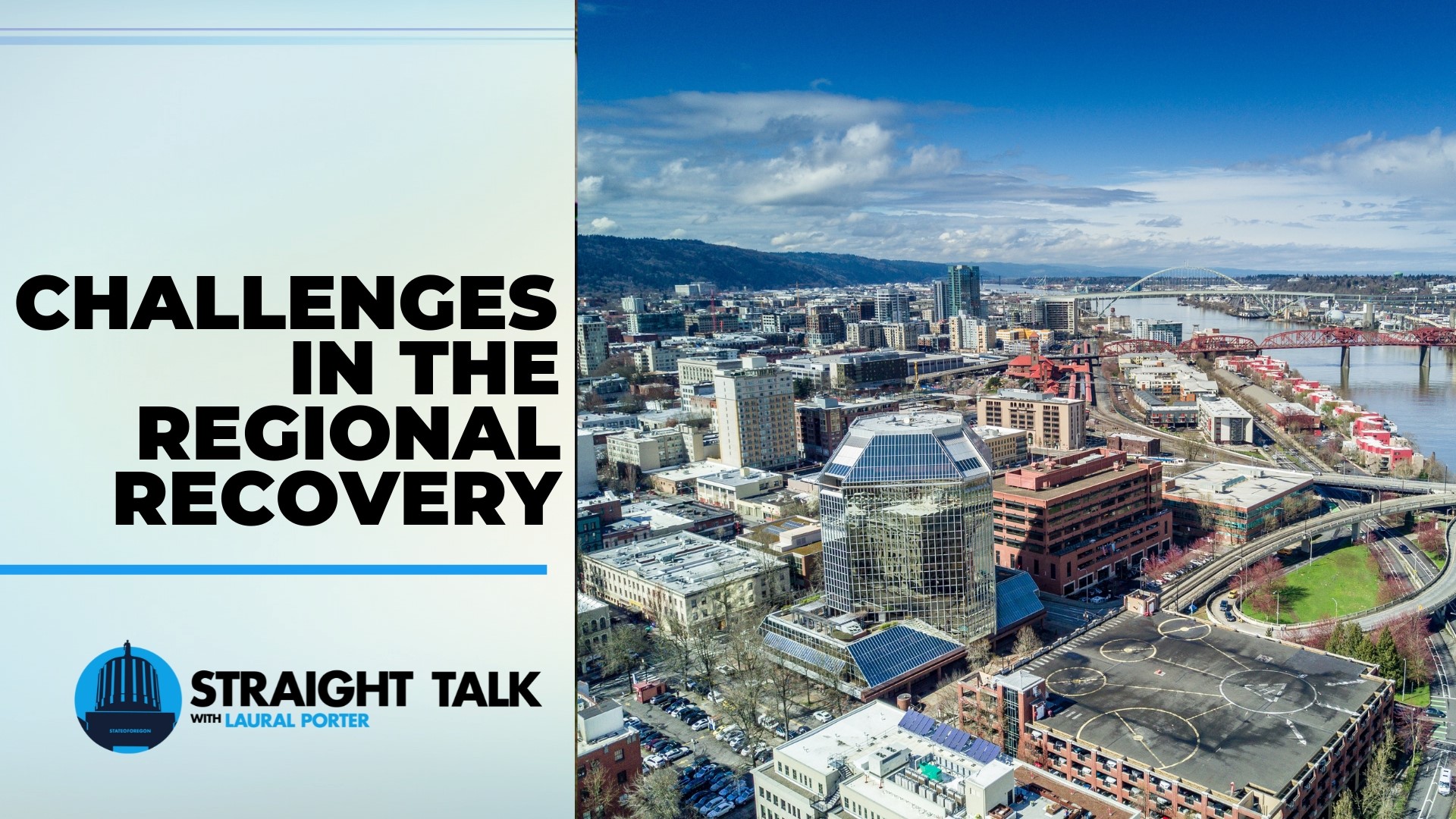PORTLAND, Ore. — CEO of the Portland Business Alliance Andrew Hoan said if you turned the clock back a few years, a starkly different Portland would be revealed than the one residents live in today.
He said Portland's story was synonymous with cranes, building, construction activity and investment. In 2018, few cities had more construction cranes in use than Portland.
"According to the Urban Land Institute, in 2016-2017, we were one of the most attractive places to do business. And we have fallen precipitously," Hoan said.
Hoan joined John Tapogna of ECONorthwest and Michelle Neiss from DHM Research as guests on this week's episode of "Straight Talk" to discuss the 2022 State of the Economy report.
Hoan said much of the decline is linked to the pandemic, but Portland isn't recovering as quickly as some peer cities such as Seattle, Nashville, Austin, Salt Lake City and Indianapolis.
Portland's economic recovery slower than peer cities
Tapogna said part of the reason is that relative to other cities, Portland had a posture of more regulation around the coronavirus public health crisis, and citizens stayed away from restaurants and hotels much more than in some other regions.
"So, consequently, we've had lower death rates and we've saved lives, but that has translated to a somewhat slower job recovery than our peers, especially Nashville and Indianapolis," Tapogna said.


Tapogna also said fewer visitors and employees are returning to downtown Portland compared to Seattle.
"And I think that is tied probably to perceptions around safety," Tapogna said.
DHM Poll: More than 8 in 10 people say quality of life in Portland region is getting worse
A new poll from DHM research asked respondents how they feel about their quality of life. The vast majority said it's getting worse.
"Regardless of which county you live in, regardless of your income level, or your age group, everyone is pretty down on where we are right now," Michelle Neiss said.
In addition, 62% of respondents said the region is headed in the wrong direction, a dramatic increase in the last two years.
"It was tough, tough news. It was the lowest we've ever seen it in terms of the number of people saying we are on the right track. Voters are very frustrated and upset, and you see that in how they view the direction the region is headed which is also a commentary on how they view the leadership," Neiss said.


Homelessness, crime, and cost of living are top concerns
The DHM poll asked voters their top concerns in an open-ended question. Homelessness was by far the top concern with 45% of respondents saying it was the issue they want to see addressed the most.
"For 45% of people in an open-ended question to say homelessness is their top concern, we rarely ever see that. I mean, there's a consensus among residents that this needs to be addressed," Neiss said.
Voters second biggest concern was crime. Neiss said crime didn't even show up in the poll two years ago. In another poll question, voters also chose cost of living as a top concern.


Clear message to elected leaders
Hoan said when you put those three voter concerns together — homelessness, crime, and affordable housing — it shows the region is in danger of losing the quality of life people hold dear and drew them to the area in the first place.
"We are losing the things we have always held as some of our most sacred assets," Hoan said.
He said the poll results show voters are making it clear elected officials should be laser focused on addressing these issues.
"You address these two issues, homelessness and public safety, and that is what your morning, noon, and night should be predicated on," Hoan said.
Still optimistic about the region's future
Hoan said he is encouraged by the reaction from elected officials following the release of the 2022 State of the Economy report and the DHM poll results. He cited the number of executive actions from Portland Mayor Ted Wheeler addressing homelessness as urgent steps in the right direction.
"Whether you agree or disagree with how the mayor is addressing this and proposing solutions, it is an absolute example of how you can act with urgency, as if this was a crisis, and a humanitarian one at that." Hoan said.
Tapogna said he remains bullish on Portland in the long run, calling it a beautiful city with fundamentals that are still strong. He believes the real challenge behind the homeless crisis is the lack of housing.
"We under-built for a generation. That under supply drove rents and mortgages up and it has created that humanitarian crisis. So, build, build, build," he said.
Hoan said there is a bright spot in construction. Applications for building multi-family dwellings have tripled.
"That is great news. It shows there's a return to investment and a welcoming investment environment," he said.
'It's time to pivot'
Hoan said the Portland region has become a metropolis that requires a different set of tactics and strategy to deal with metropolis problems.
"Now, it's time to pivot," he said. "We are at an inflection point and we need to act with absolute urgency to address issues voters are telling us they want addressed."
Straight Talk airs Friday at 7 p.m. and Saturday and Sunday at 6:30 p.m.
Straight Talk is also available as a podcast:

